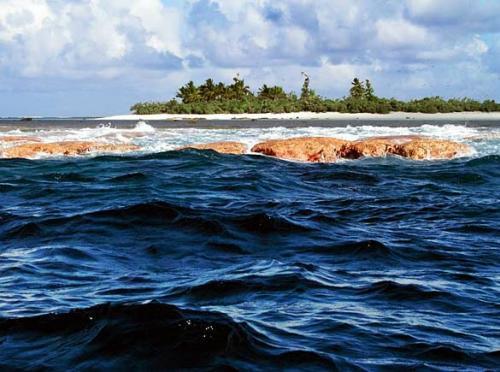The digestive systems of fish play a vital role in maintaining the health of the oceans and moderating climate change, researchers said on Thursday.
Computer models showed how bony fish produced a large portion of the inorganic carbon that helps maintain the oceans' acidity balance and was vital for marine life, they said.
|

|
|
The digestive systems of fish play a vital role in maintaining the health of the oceans and moderating climate change, researchers said on Thursday. |
The world's bony fish population, estimated at between 812 million and 2 billion tons, helped to limit the consequences of climate change through its effect on the carbon cycle, University of British Columbia researchers reported in the journal Science.
"This study is really the first glimpse of the huge impact fish have on our carbon cycle -- and why we need them in the ocean," researcher Villy Christensen and colleagues wrote.
Calcium carbonate is a white, chalky material that helps control the acidity balance of sea water and is essential to the health of marine ecosystems and coral reefs.
It helps regulate how much carbon dioxide oceans would be able to absorb from the atmosphere in the future, the researchers said.
Until now, scientists believed calcium carbonate came from microscopic marine plankton. The new findings suggested between 3 percent and 15 percent of the material comes from bony fish, said Rod Wilson of the University of Exeter in Britain, who worked on the study.
Bony fish, which include about 90 percent of marine species but not sharks or rays, produce calcium carbonate that forms crystals in the gut and is then excreted in chalky solids.
"Because of the impact of global climate change, fish are likely to have an even bigger influence on the chemistry of our oceans in the future," Wilson said in a statement.
(China Daily January 16, 2009)